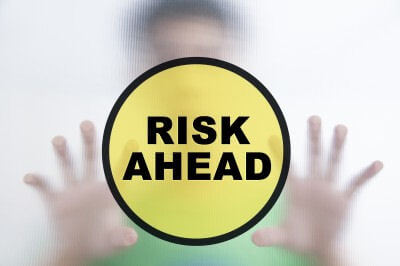
One of the first things you might associate with teenagers is their risk-taking behavior. And most of the time, those associations are negative. Right?
That’s because we are deluged with stories of troubled youth whose risk-taking actions got out of hand —sometimes with tragic results. But what if there was a flip-side to youth risk-taking? A side that would make us encourage teenagers to stretch their comfort zones?
In a recent article, What Happy People Do Differently, positive psychologists, Robert Biswas-Diener and Todd Kashdan, claim that truly happy people understand “happiness is not just about doing things that you like. It also requires growth and adventuring beyond the boundaries of your comfort zone.”
“Curiosity,” they say, “is largely about exploration…the most direct route to becoming stronger and wiser.” A study led by Kashdan and psychologist Michael Steger found that “curious people invest in activities that cause them discomfort as a springboard to higher psychological peaks.”
Teens Find Identity through Discomfort
In Tomorrow’s Change Makers: Reclaiming the Power of Citizenship for a New Generation, young people, like adults, said they found happiness when they experienced risk-taking. At the peak of their discomfort, students made comments, including:
“I crossed barriers in my mind.”
“I felt scared.”
“I felt liberated.”
“What a powerful experience.”
“I was way out of my comfort zone.”
What risk-taking experiences caused them to make these comments? Were they high on drugs or alcohol?
Quite the opposite. These students were describing the positive experience of pushing their psychological boundaries as they participated in a variety of community service activities.
Some had come face-to-face with people living in situations very different from their own. Others were doing physical labor that stretched them to new levels of endurance. Several feared failure as they set their sights on unimaginable goals to benefit others.
These students came from highly diverse backgrounds. But what they shared in common was a sense of accomplishment and self-esteem that came from learning to solve problems, working with others, and pushing their comfort zones.
The bottom line? The students in this study discovered their identities through the process of risk-taking. Simultaneously, they found a path to happiness.
The Teen Brain Craves Risk-Taking
Much of the research on happiness has been conducted with adults. But what we’ve learned about the teen brain sheds light on their happiness too.
Before adolescence, children learn how to fit into society. With parents and teachers as guides, they absorb the norms and unspoken rules of how to behave at home and school. They are like little sponges, soaking up megabytes of information!
As children enter their teen years, they begin to merge what they know about society with their psychological selves. They search for their own identities, separate from their parents.
Changes to the limbic system of the brain cause teens to seek risk, challenge, and emotional stimulation. While some parents fear this phase of a child’s life, it’s really quite natural. And it’s a time to be embraced as a positive transition to adulthood.
Of course, we mostly associate teen risk-taking with drinking, drugs, smoking, and sexual experimentation. But risk-taking is equally associated with positive activities, like mountain climbing, community service, politics, faith groups, and other experiences that can push young people out of their comfort zones and reward them handsomely.
Like the teens that were part of my research study, risk-taking can seed happiness, life purpose, and well-being. When young people learn to overcome challenges and meet risk head on, they learn to be resilient. They learn that exploration beyond their comfort zones often leads to unexpected rewards and psychological peaks. They develop courage, curiosity, self-confidence, and persistence.
Can we reshape the idea that teen risk-taking is always negative? What positive experiences have you or your teen enjoyed that pushed psychological comfort zones and increased happiness?
Photo Credit: Basketman23
Published: July 12, 2013
Tags: character strengths, happiness, internal rewards, learning, neuroscience, parenting, positive youth development, service-learning, Sports, youth civic engagement, youth development approach


